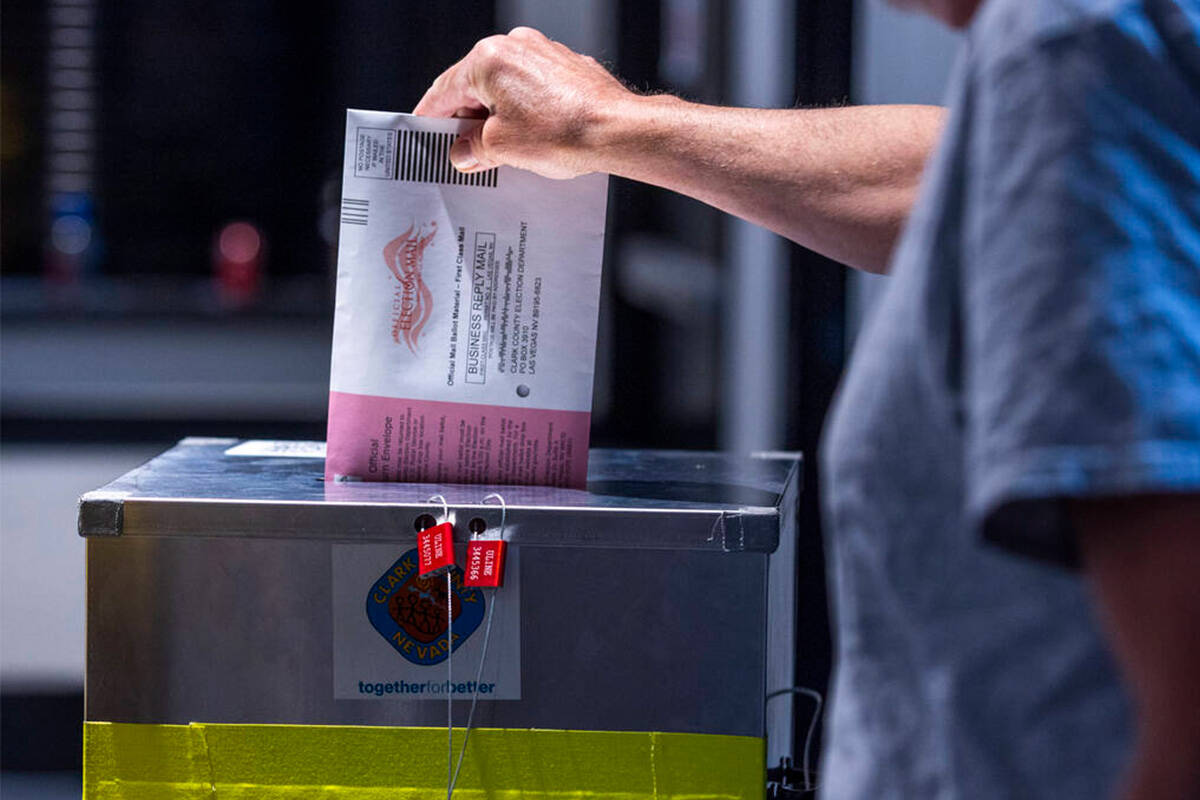Live in Henderson or Boulder City? Here’s what ballot measures you’ll be voting on.
Residents of Henderson and Boulder City aren’t only voting for their preferred representatives this November. They’re also voting on measures concerning everything from fire stations to libraries:
City of Henderson Question 1
What it would do: This measure would add a property tax of $0.06 cents per $1oo of assessed value for 30 years starting July 1, 2025.
Revenue generated from the tax would be used to build new fire stations, hire personnel, purchase equipment and make improvements to the Henderson Fire Department and emergency medical services.
What supporters say: Supporters claim that Henderson’s population increase has necessitated a need for more emergency services. Calls for service have increased 23.1 percent and medical transports have increased 24.4 percent over the past five years.
Henderson’s Fire Department currently has to compete with other departments for funding, and supporters say that this prevents the fire department from diverting resources from other departments.
What opponents say: Opponents claim that the stellar performance of the fire department is evidence that the fire department is able to function under current operating budgets.
Under this measure, property taxes would increase to $0.83 cents per $100 of assessed value. A home valued at $300,000 would incur a tax of $63 per year, while a home valued at $500,000 would incur $105 per year. Opponents argue that Henderson currently has a tax advantage with low property taxes and that an additional tax impacts home affordability.
Henderson Library District Question 1
What it would do: This measure would add a property tax of $0.02 cents per $100 of assessed value for 30 years starting July 1, 2025. For an owner of a $100,000 home, the tax would amount to an additional $7 per year.
Revenue generated from this tax would build libraries, maintain and improve current libraries and restore operating hours at some libraries.
What supporters say: Supporters say that revenue from this tax would go toward building a full-size library in West Henderson, restore Sunday operating hours at Gibson and Paseo Verde libraries, fund a smaller library in an underserved area of Henderson, fund maintenance for existing libraries and expand physical book and digital resources.
They claim that libraries in Henderson have a history of frugality and taking on little debt. Supporters say that staffing has remain unchanged since 2014 and that the increase in property tax is necessary for an expansion and continued service.
What opponents say: Opponents reiterate that Henderson enjoys low property taxes and that the tax would place a burden on property owners. For a home with a value of $300,000, the increase would amount to approximately $21 dollars a year.
Opponents say that Henderson libraries have other means of funding, such as rebudgeting and/or accepting charitable donations. Opponents claim that measures like this have been shot down twice before in 2002 and 2012.
Boulder City Question 1
What it would do: Boulder City is asking residents if it can use $9 million currently in the city’s Capital Improvement Fund to complete a recreational swimming pool project. In 2021, Boulder City voters approved $7 million for the same pool project. Since then, construction costs have increased by $9 million, requiring additional funding. There is no proposed tax or fee increase associated with this measure.
What supporters say: Supporters argue that a swimming pool provides activities for residents during extreme heat and provides an area for local swim teams to practice. They argue that the pool will play a role in public safety by providing swim lessons and water safety courses before residents try swimming in Lake Mead National Recreational Area.
If $9 million were approved, there would be $8.1 million left in the Capital Improvement Fund for other projects.
What opponents say: Opponents claim that city finance staff requested $4 million to cover a funding gap left by increasing construction costs, but that the City Council more than doubled that amount.
Opponents add that how the additional $5 million would be spent was not specified. The City Council noted that the $5 million would cover construction uncertainties. Opponents urge “to demand responsibility in how the money is spent.”
Contact Annie Vong at avong@reviewjournal.com. Follow @annievwrites on X.






















